
Whether at home or work, most people spend the majority of their lives indoors. Despite spending less time outside, there is still a strong connection between humans and the outdoors.
For those working in an office, the simplicity of adding a little green to their surroundings could help; a whopping 97% of people would prefer to have more plants in their workplace. Although not everyone has a beautiful scenic view outside of their offices or home windows, adding indoor plants can help make up for that!
Viewing and caring for plants has a wide variety of health benefits—from boosting your mood to helping you focus—which is all the more reason to add a little greenery indoors.

Advertisement
01
Boost your mood and decrease anxiety
Looking for an easy way to improve your mood? Simply interacting with indoor plants promoted more comfortable and soothed feelings throughout the day.
Indoor plants help to slow the activity of the sympathetic nervous system—the part of the nervous system that responds to stress by preparing you to fight or run away—helping to reduce anxiety.
This helps with anxiety both before and after you are exposed to a stressor, making greenery a fun way to lower your body’s response to stress and overall anxiety.
Yes, being around indoor plants can help you recover more quickly from emotional stress and reduce the symptoms of anxiety!
02
Increase your productivity
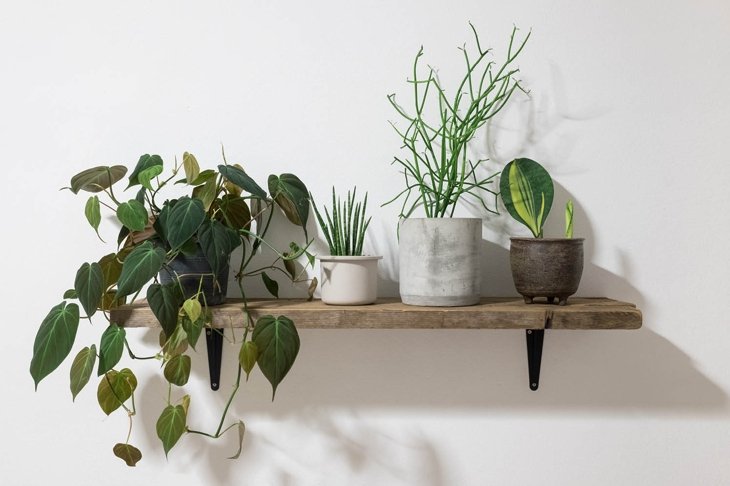 Employees with a view of plants are likely to be more productive than people without plants. And this isn’t a small difference, one study found productivity increased by 15% with indoor plants in the office.
Employees with a view of plants are likely to be more productive than people without plants. And this isn’t a small difference, one study found productivity increased by 15% with indoor plants in the office.
Another showed that, with greenery around, employees completed a test 19% faster.
This increased productivity is even found in classrooms. Simply adding plants into the classroom helped children progress about 20% faster through their curriculum.
03
Boost your creativity
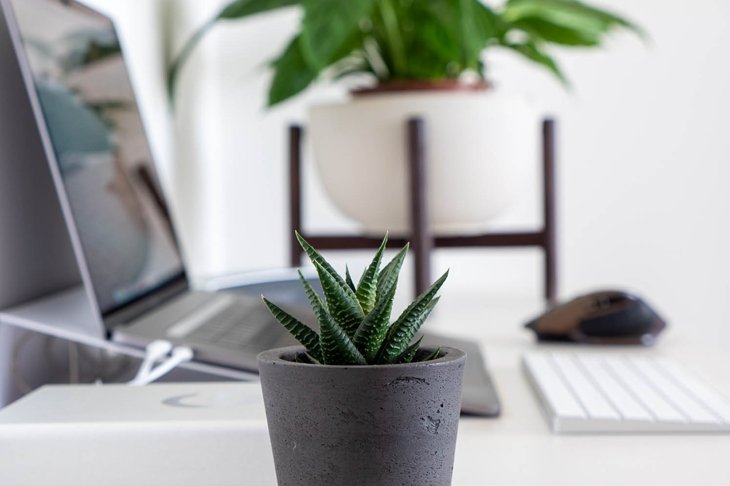 Nature has inspired ideas for centuries; from architecture to jewelry design, the environment has played a large role in human ingenuity.
Nature has inspired ideas for centuries; from architecture to jewelry design, the environment has played a large role in human ingenuity.
This isn’t just speculation; plant diversity boosts creativity. Workplace design and the addition of indoor plants has been shown to increase creativity, innovative ideas, and help with problem solving.
Advertisement
04
Reduce your stress
 Stress impacts the body in many ways, including how quick you recover from being sick.
Stress impacts the body in many ways, including how quick you recover from being sick.
Indoor plants help here too by lowering stress, and are even linked to better recovery after surgery. The patients in one study reported lower stress levels and better overall health than patients who didn’t have plants in their hospital room.
05
Increase your concentration and memory
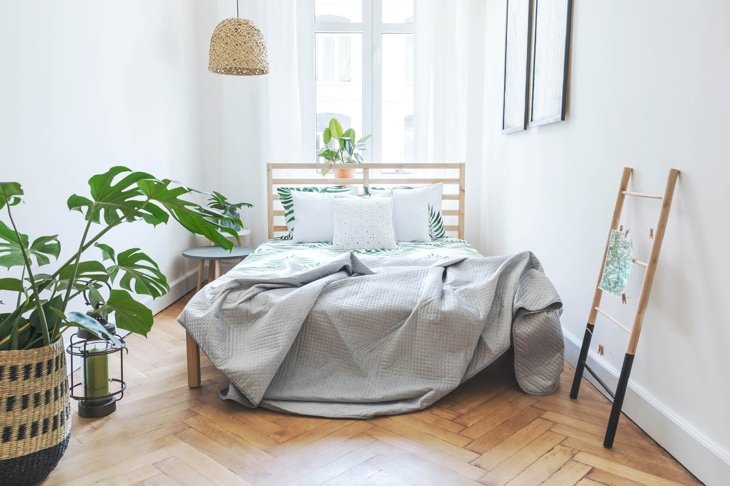 Having plants around could also help you concentrate better, and can help young kids focus even more. Indoor plants helped a classroom of elementary students increase their attention and concentration.
Having plants around could also help you concentrate better, and can help young kids focus even more. Indoor plants helped a classroom of elementary students increase their attention and concentration.
Time spent in natural settings and viewing greenery reduces fatigue, helping you to concentrate for longer periods of time. An added bonus is improved memory when around plants.
06
Improve your self-esteem and confidence
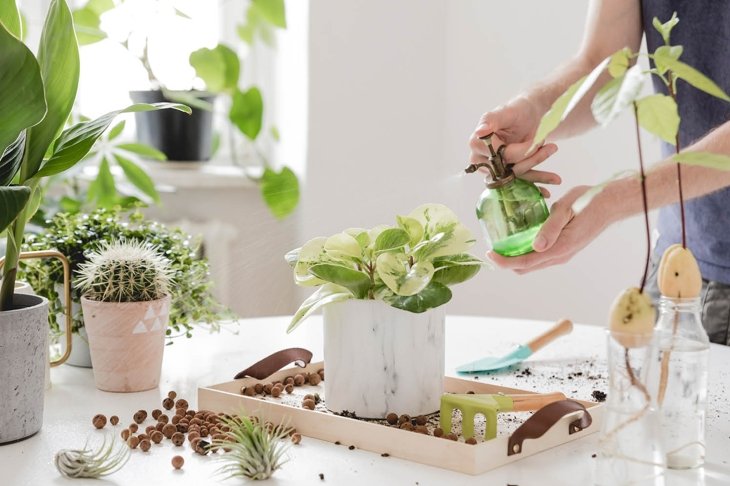 Taking the time to care for a plant can benefit your self-confidence too. Buying a plant or even growing one from a seed takes time. Regularly checking on the plant, watering it, ensuring it gets adequate sunlight, and watching the plant grow shows the value of patience and effort.
Taking the time to care for a plant can benefit your self-confidence too. Buying a plant or even growing one from a seed takes time. Regularly checking on the plant, watering it, ensuring it gets adequate sunlight, and watching the plant grow shows the value of patience and effort.
A sense of pride comes from keeping a plant alive and studies show gardening can help people reach self-esteem goals in therapy through identifying with the growth of the plant.
Advertisement
07
Improve satisfaction with your environment
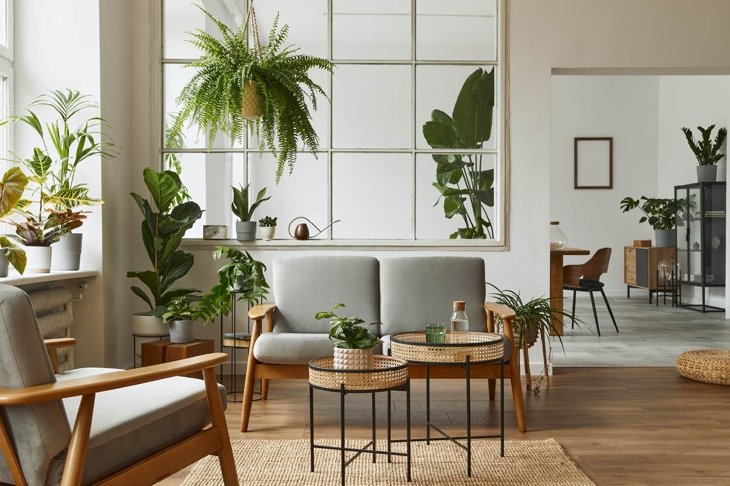 People report that plants help to provide a sense of comfort, liven up a space, and provide more pleasure to their environments. Most people find that adding plants to rooms makes the room more cheerful and lively.
People report that plants help to provide a sense of comfort, liven up a space, and provide more pleasure to their environments. Most people find that adding plants to rooms makes the room more cheerful and lively.
Likely the fun of adding plants is part of the reason behind the benefits indoor plants have on your mood, stress levels, and concentration.
08
Improve your air quality
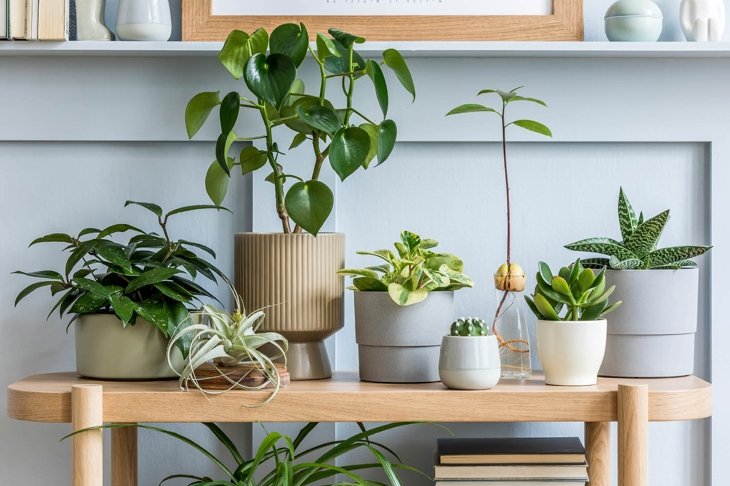 There are mixed results on how plants truly impact the quality of air.
There are mixed results on how plants truly impact the quality of air.
Some research shows that plants can help lower pollution levels and increase humidity. This may help reduce symptoms of allergies, headaches, and irritation from dry air or air pollution.
09
Reduce symptoms of PTSD, dementia, and depression
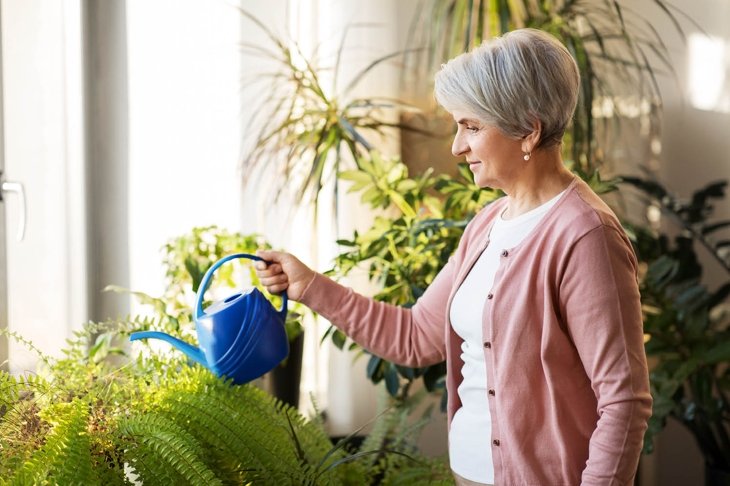 Post traumatic stress disorder (PSTD), dementia, and depression are all very different diseases, but exposure to indoor plants may help improve the symptoms with all of them.
Post traumatic stress disorder (PSTD), dementia, and depression are all very different diseases, but exposure to indoor plants may help improve the symptoms with all of them.
People diagnosed with depression or PTSD reported identifying with the growth of the plants they cared for, helping them to see opportunities for their own growth. Participating in gardening also helped patients with dementia and they saw improvements in aggressive behaviors and mental capacity.







